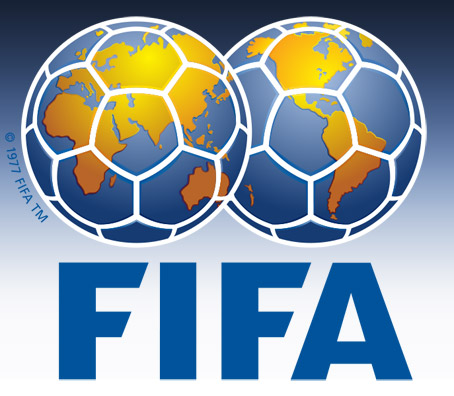
Matters came to head almost immediately after the conclusion
of the FIFA World cup which was held in Russia between the months of June and
July, 2018. With the Federal High Court of Nigeria, Jos Division giving a
judgement which categorically declared Mr. Chris Giwa as the lawfully elected
NFF president in opposition to Mr. Amaju Pinnick (current president, NFF). This
decision has caused a widespread upheaval in the executive arm of the Federal
Government, particularly with the Ministry of Sports & Youth Development
and the Ministry of Justice down to the Football Parastatal. The major problem
unfortunately is how this turn of events will purportedly affect the Nigerian
Football Federation (NFF) and its healthy affiliation with the Football world
governing body (FIFA).
of the FIFA World cup which was held in Russia between the months of June and
July, 2018. With the Federal High Court of Nigeria, Jos Division giving a
judgement which categorically declared Mr. Chris Giwa as the lawfully elected
NFF president in opposition to Mr. Amaju Pinnick (current president, NFF). This
decision has caused a widespread upheaval in the executive arm of the Federal
Government, particularly with the Ministry of Sports & Youth Development
and the Ministry of Justice down to the Football Parastatal. The major problem
unfortunately is how this turn of events will purportedly affect the Nigerian
Football Federation (NFF) and its healthy affiliation with the Football world
governing body (FIFA).
A lot of arguments against FIFA’s involvement in the
political squabbles of the NFF has been in ignorance of the FIFA STATUTE
(Regulations Governing the Application of the Statutes and Standing Orders of
the Congress) May 2008 edition. Article 64, which stipulates the obligations of
Member Associations, particularly under par. 2 & 3 states respectively:
political squabbles of the NFF has been in ignorance of the FIFA STATUTE
(Regulations Governing the Application of the Statutes and Standing Orders of
the Congress) May 2008 edition. Article 64, which stipulates the obligations of
Member Associations, particularly under par. 2 & 3 states respectively:
“Recourse to ordinary
courts of law is prohibited unless specifically provided for in the FIFA
regulations”
courts of law is prohibited unless specifically provided for in the FIFA
regulations”
“The Associations shall
insert a clause in their statutes or regulations, stipulating that it is
prohibited to take disputes in the Association or disputes affecting Leagues,
members of Leagues, clubs, members of clubs, Players, Officials and other
Association Officials to ordinary courts of law, unless the FIFA regulations or
binding legal provisions specifically provide for or stipulate recourse to
ordinary courts of law. Instead of recourse to ordinary courts of law,
provision shall be made for arbitration. Such disputes shall be taken to an
independent and duly constituted arbitration tribunal recognized under the
rules of the Association or Confederation or to CAS. The Associations shall
also ensure that this stipulation is implemented in the Association, if
necessary by imposing a binding obligation on its members. The Associations
shall impose sanctions on any party that fails to respect this obligation and
ensure that any appeal against such sanctions shall likewise be strictly
submitted to arbitration, and not to ordinary courts of law.”
insert a clause in their statutes or regulations, stipulating that it is
prohibited to take disputes in the Association or disputes affecting Leagues,
members of Leagues, clubs, members of clubs, Players, Officials and other
Association Officials to ordinary courts of law, unless the FIFA regulations or
binding legal provisions specifically provide for or stipulate recourse to
ordinary courts of law. Instead of recourse to ordinary courts of law,
provision shall be made for arbitration. Such disputes shall be taken to an
independent and duly constituted arbitration tribunal recognized under the
rules of the Association or Confederation or to CAS. The Associations shall
also ensure that this stipulation is implemented in the Association, if
necessary by imposing a binding obligation on its members. The Associations
shall impose sanctions on any party that fails to respect this obligation and
ensure that any appeal against such sanctions shall likewise be strictly
submitted to arbitration, and not to ordinary courts of law.”
On the other side of the divide, the Section 251 (1) of the Constitution
of the Federal Republic of Nigeria particularly in paragraph P states:
of the Federal Republic of Nigeria particularly in paragraph P states:
“Notwithstanding
anything to the contained in this Constitution and in addition to such other
jurisdiction as may be conferred upon it by an Act of the National Assembly,
the Federal High Court shall have and exercise jurisdiction to the exclusion of
any other court in civil causes and matters; (p) the administration or the
management and control of the Federal Government or any of its agencies”
anything to the contained in this Constitution and in addition to such other
jurisdiction as may be conferred upon it by an Act of the National Assembly,
the Federal High Court shall have and exercise jurisdiction to the exclusion of
any other court in civil causes and matters; (p) the administration or the
management and control of the Federal Government or any of its agencies”
The facts leading up to this dilemma reveals that there were two
domestic elections conducted and each respectively made Pinnick and Giwa
president of the NFF. The recognition of Amaju Pinnick by FIFA to the exclusion
and ban of Chris Giwa, definitely forced the hand of the latter to seek
remedies from the Nigerian judiciary. The interpretation and declaration of the
Federal Judge is agreed to be in line with the stipulation of the Nigerian
constitution. The effect, however, from this interpretation has resulted to a
gross violation of the FIFA standing rules as stated above. Consequently,
Nigeria as a whole, risks the reality of being banned permanently by FIFA from
football related activities internationally.
domestic elections conducted and each respectively made Pinnick and Giwa
president of the NFF. The recognition of Amaju Pinnick by FIFA to the exclusion
and ban of Chris Giwa, definitely forced the hand of the latter to seek
remedies from the Nigerian judiciary. The interpretation and declaration of the
Federal Judge is agreed to be in line with the stipulation of the Nigerian
constitution. The effect, however, from this interpretation has resulted to a
gross violation of the FIFA standing rules as stated above. Consequently,
Nigeria as a whole, risks the reality of being banned permanently by FIFA from
football related activities internationally.
The bone of contention legally speaking would be as to which of
the two legislations should be followed. Section 1 of the Nigerian constitution
clearly answers this. It states:
the two legislations should be followed. Section 1 of the Nigerian constitution
clearly answers this. It states:
“(1) This Constitution
is supreme and its provisions shall have binding force on the authorities and
persons throughout the Federal Republic of Nigeria. (2) The Federal Republic of
Nigeria shall not be governed, nor shall any persons or group of persons take
control of the Government of Nigeria or any part thereof, except in accordance
with the provisions of this Constitution. (3) If any other law is inconsistent
with the provisions of this Constitution, this Constitution shall prevail, and
that other law shall, to the extent of the inconsistency, be void”.
is supreme and its provisions shall have binding force on the authorities and
persons throughout the Federal Republic of Nigeria. (2) The Federal Republic of
Nigeria shall not be governed, nor shall any persons or group of persons take
control of the Government of Nigeria or any part thereof, except in accordance
with the provisions of this Constitution. (3) If any other law is inconsistent
with the provisions of this Constitution, this Constitution shall prevail, and
that other law shall, to the extent of the inconsistency, be void”.
The fact remains that the NFF is an agency under the
Government of Nigeria, similarly FIFA rules are merely an international treaty
that is yet to be domesticated by the nation, additionally, FIFA’s arbitration
jurisprudence is natured after the laws of Switzerland, flowing from this, the
constitution is far more superior to the FIFA standing rules. With utmost
defiance to whatever the consequences may be, the Judgment for Giwa stands. It
must be appreciated that the sovereignty of Nigeria is hinged on
non-interference of a foreign body in domestic affairs of the state, Section 1
of the constitution is a staple for this. However, the reaffirmation of our nations
sovereignty would spell an economic and social backlash in retrospect.
Government of Nigeria, similarly FIFA rules are merely an international treaty
that is yet to be domesticated by the nation, additionally, FIFA’s arbitration
jurisprudence is natured after the laws of Switzerland, flowing from this, the
constitution is far more superior to the FIFA standing rules. With utmost
defiance to whatever the consequences may be, the Judgment for Giwa stands. It
must be appreciated that the sovereignty of Nigeria is hinged on
non-interference of a foreign body in domestic affairs of the state, Section 1
of the constitution is a staple for this. However, the reaffirmation of our nations
sovereignty would spell an economic and social backlash in retrospect.
There is no legal solution to this insipient negative
outcome. Nevertheless, in the spirit of sportsmanship and nationalism, Chris
Giwa ought to understand the implications of the enforcement of his legal
right. There is no Win-Win to this. Such selfish venture although sanctionable constitutionally,
would attract highly negative setbacks for the future of Nigeria football. Likewise,
FIFA cannot go back on its standing rules; in truth. Nigeria will not be the
only country to be banned for the mere reason of governmental intervention in
its own domestic sport administration within the last decade.
outcome. Nevertheless, in the spirit of sportsmanship and nationalism, Chris
Giwa ought to understand the implications of the enforcement of his legal
right. There is no Win-Win to this. Such selfish venture although sanctionable constitutionally,
would attract highly negative setbacks for the future of Nigeria football. Likewise,
FIFA cannot go back on its standing rules; in truth. Nigeria will not be the
only country to be banned for the mere reason of governmental intervention in
its own domestic sport administration within the last decade.
The remedy to this should be mediation between the warring
parties, a return to status quo and a hearty compensation to Chris Giwa.
Similarly, the legislative arm of the Nigerian Government ought to incorporate
the FIFA standing rules into our laws. FIFA on the other hand may need review
its seemingly overbearing and frankly unrealistic demand from independent
nations like ours that have recognised judicial systems.
parties, a return to status quo and a hearty compensation to Chris Giwa.
Similarly, the legislative arm of the Nigerian Government ought to incorporate
the FIFA standing rules into our laws. FIFA on the other hand may need review
its seemingly overbearing and frankly unrealistic demand from independent
nations like ours that have recognised judicial systems.

Eseoghene
Palmer Esq is an associate with Adedunmade Onibokun & Co. He has cultivated
interest in Corporate Law, Real Estate, Intellectual Property, Sports,
Entertainment law and Mediation.
Palmer Esq is an associate with Adedunmade Onibokun & Co. He has cultivated
interest in Corporate Law, Real Estate, Intellectual Property, Sports,
Entertainment law and Mediation.
Photo Credit – The News Nigeria
